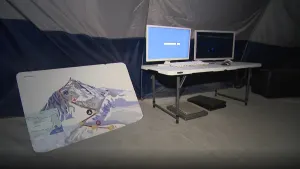More Stories
The so-called “tsunami” of the Omicron variant in New Jersey is receding by the day, according to state health officials. But the variant still took its toll on the Garden State.
“The overwhelming sentiment on both sides of the aisle is we want to get to the place where we can live with this thing in as normal a fashion as possible,” Gov. Phil Murphy said. “We want to look at the longer-range trendline as a 7-day measure.”
COVID-19 hospitalizations are back under 3,000, and the rate of transmission is consistently well below 1.
“Trends that we are seeing literally across all metrics continue to suggest that the Omicron tsunami, as fast as it washed in, is washing out at nearly the same speed,” Murphy said.
But at his first coronavirus briefing in a week and a half, Murphy said the toll Omicron exacted was great. Nearly 3,000 people who had tested positive for the virus passed away in January.
MORE: Search for a Cure
COVID RESOURCES: COVID-19 vaccine resources and case data
“This makes the case pretty clear as the numbers of those who have received their boosters is nearly equal to those who have either not yet completed their primary course or choosing to remain completely unvaccinated. The rates of illness, hospitalization and death among those categories is in a word – stark,” Murphy said.
The governor’s briefing had to be cut short after a fire alarm went off during the Q&A portion.
Trenton firefighters who arrived at the War Memorial a short time later said a water leak in a janitor's closet had set off the fire alarms. The governor did not have an opportunity to answer how he was balancing his optimism with caution.
"However even with these numbers dropping, none of us are yet at a point where we feel completely comfortable. We saw last winter how the numbers could quickly turn back around and we do not want to test that theory with Omicron,” Murphy said.
He also did not answer whether or not he had made a decision to continue the 30-day public health emergency when it expires in just over a week.
State Police Superintendent Col. Patrick Callahan said that two temporary morgues are currently operational in New Jersey. The one in Trenton currently holds 12 bodies. The one in Newark is empty.
More from News 12
1:31

What's Cooking: Uncle Giuseppe's Marketplace's prime rib roast
1:30

Looking for a road trip? Check out Big Snow at American Dream in East Rutherford
1:27

What's Cooking: Uncle Giuseppe's quiche lorraine
2:34

Guide: Safety tips to help prevent home burglaries
2:19

Guide: Safety measures to help prevent fires and how to escape one
2:36
